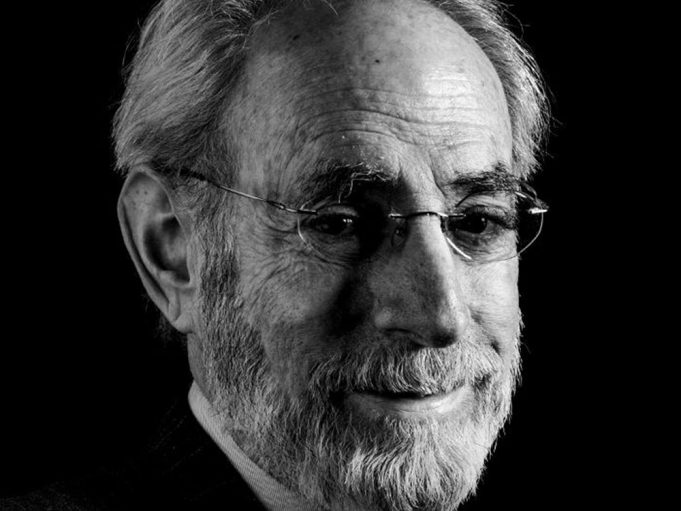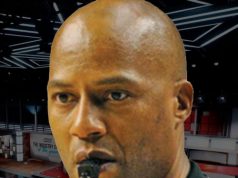He used to sit anonymously in the Silverado High School bleachers in Las Vegas during the mid-2000s, a bookish, kind man who could easily pass for a grandfather sitting among the other proud parents. Someone striking up a casual conversation with Marc Ratner during a high school basketball game they were watching may very well not have realized that they were sitting with one of the most influential, respected figures in sports, not to mention someone associated with some of the most iconic names in professional boxing history. Here is a man who has quietly earned enormous respect as a rules enforcer for more than a quarter century working out of the boxing mecca of Las Vegas, his hometown since he was in the eighth grade, and is on a first-name basis with legends, but he was delighted to simply be just a face in the crowd at Silverado High School.
Ratner, a devoted family man who married at 41 and recently celebrated his 30th anniversary, used to show up regularly to watch his son, Heiden, a two-time All-State guard in 2006 and ’07, display skills that would earn him a scholarship to James Madison University. For Marc, this remains as good as it gets despite the professional life he has lived. And a remarkable life it has been. In his roles with the Nevada Athletic Commission since 1985, Ratner appreciated the ring artistry of Marvin Hagler, Floyd Mayweather, Sugar Ray Leonard and countless others. He was on hand when the infamous “Fan Man” crashed his paraglider into the side of the ring at Caesers Palace on the Las Vegas Strip during a heavyweight bout between Evander Holyfield and Riddick Bowe in 1993. Four years later, the bizarre became the absurd when Mike Tyson bit off a part of Holyfield’s ear during a bout at the MGM Grand Garden Arena. Ratner saw it all.
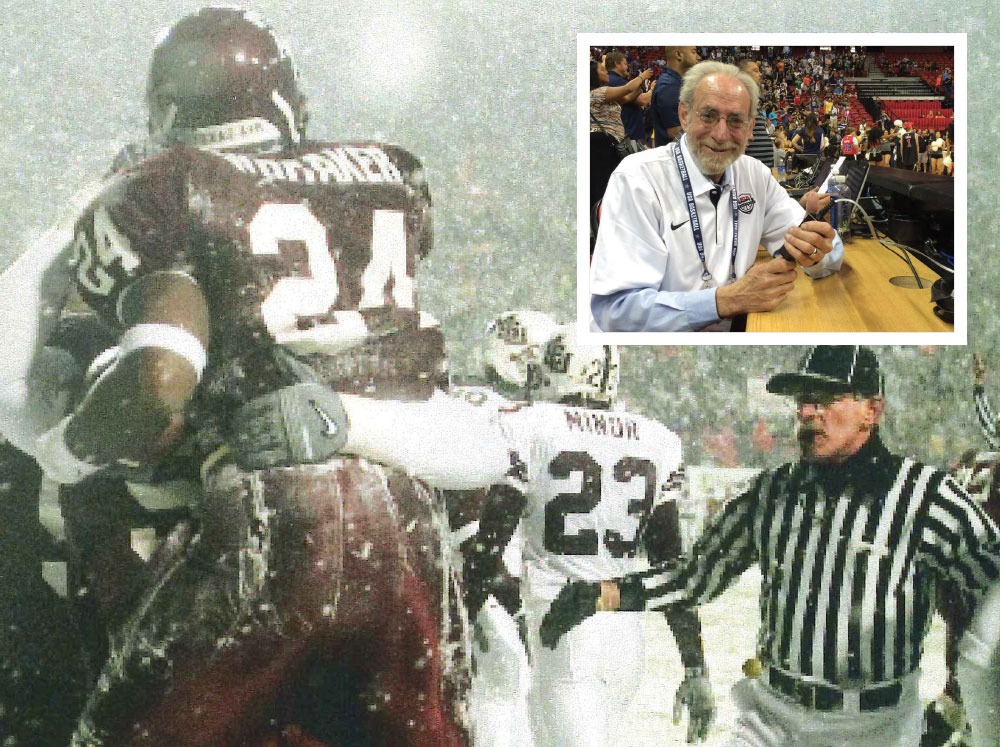
As if that wasn’t impressive enough, Ratner has managed to cram more into his professional career. He was a football official who progressed from Pop Warner in 1966 to the Cotton Bowl in 2006, after which he retired. While in a striped shirt, Ratner worked in the Pacific Coast Athletic Association, and the Big West and Mountain West conferences. He has served as the Nevada Interscholastic Activities Association’s commissioner of officials for Southern Nevada since 1991. And since the days when Jerry Tarkanian was chewing on towels as the UNLV coach in the early 1990s, Ratner has somehow found the time to serve as the program’s shot-clock operator.
The man has seen so much in a lifetime. And yet it never got better for him than when he was an anonymous face in the crowd cheering on his son.
“I don’t think there’s anything that I’ve done in anything that’s made me more proud than sitting in the stands watching my kid play,” Ratner said. “It’s just one of the best feelings a father can have.”
That’s what it’s all about for Ratner, a recent inductee to the Boxing Hall of Fame who expresses no desire to slow down at the age of 71. The hell with that noise. The “R” word is a non-starter with him. On the contrary, his career has evolved into serving as senior vice president for the Ultimate Fighting Championship (UFC) and helping push the popularity of Mixed Martial Arts to new heights. Wife Jody, sons David and Heiden, and daughter Mary will always be dearest to his heart. But then there’s Ratner’s passion for sports, which captivated him since Frank Sinatra, Dean Martin, Sammy Davis Jr., and Liberace were commanding the stages of the The Sands and resorts were sprouting like dandelions through this once quiet city in the desert during the 1950s. His credentials as an athlete are sparse — strictly intramurals in high school and getting a few at-bats as a reserve right fielder for Nevada Southern (now UNLV) — but that passion for sports burned within Ratner from an early age.
“I helped him learn how to fish,” said Sig Rogich, former Nevada Athletic Commission chairman, who has been close friends with Ratner since 1957, when the two were classmates at John C. Fremont, the first junior high school in Las Vegas. “The first time I took him on a fishing trip with a bunch of friends, he came galloping out of his house and he had a picnic basket with … peanut butter and jelly sandwiches and off we went. My friend looked at me and said, ‘Who is this guy?’ He just ended up loving him. Everybody who knows Marc Ratner loves him.”
Ratner and Rogich bonded through the years, with their mutual love for sports. They were both mesmerized by Vin Scully’s majestic word paintings of Wally Moon, Sandy Koufax and other heroes on the radio during the Dodgers’ first years in Los Angeles 270 miles away. And, of course, there was boxing. There was always boxing.
“We lived in the days of Benny ‘The Kid’ Paret and the early days of Cassius Clay,” Rogich said. “Marc went to Clay’s first fight against Duke Sabedong (at the Las Vegas Convention Center in 1961). And Marc and I would watch Floyd Patterson spar. We had a great love and affinity for boxing. And when Governor Michael O’Callaghan appointed me to the Nevada State Athletic Commission, that just opened up more opportunities for Marc and me to associate ourselves with boxing.”
That was still years into the future. By the time Ratner graduated from Nevada Southern, his passion for sports remained powerful. He might have forged a career in his family’s beauty and barber supply business and scratched his itch for competitive athletics with city league activities. But then, almost as if it was predestined, Ratner came across an advertisement in the Las Vegas Sun that caught his eye one day in late 1966 or early 1967 and his life would be permanently altered.
But what truly RAISES ratner into icon status is a personality that has a way of calming the turbulent waters of the high-stakes, high-ego fight game.
“It said in essence, ‘Are you the kind of guy who goes to games and screams at officials because you know you can do better?’” Ratner said. “And it said, ‘If you can do better, why don’t you come to this meeting at Las Vegas High next Sunday?’ And I did. That’s where it started for me.
“I went to a Las Vegas high school and that’s how I started doing Pop Warner football, doing City League basketball, that kind of stuff, and slowly, but surely worked my way up.”
Ratner didn’t fit the profile back in the day with his longer hair and bell-bottom pants that were in vogue during that flower-power generation at the time of the Vietnam War. And his officiating career didn’t get off to the most promising of starts.
“I got in trouble, I think, at Lake Havasu High School,” Ratner said. “A player intercepted the ball, I was a referee and, for some reason, I was back-pedaling. And I tried to beat him to the goalline back-pedaling. It made the coach from Lake Havasu think I was trying to show up his players, but I was just having fun. That was a low moment that you learn from.”
Ratner obviously did. He evolved into a no-nonsense, by-the-book figure in boxing whose services continue to be coveted at an age when he easily could be retired. As the years passed, Ratner gained credibility and his career branched. He joined the Nevada Athletic Commission in 1985 and became chief inspector two years later. In 1992, he stepped into the role of executive director after Chuck Minker — one of his mentors and friends — died at the age of 42. Ratner remained in that role until 2006, when he accepted the position of vice president of regulatory affairs with the UFC, a sport which has seen spectacular growth under his watch. Through it all, Ratner has earned enormous respect.
During more than his 30 years in the fight business, he has left nothing to chance. As tension mounted for another fight he was overseeing, Ratner would be the eye of the hurricane. He could be seen carrying a briefcase with a tape measure to ensure that the ring conformed to the standard 20-foot by 20-foot dimensions. So exacting was this man that he kept in the trunk of his car an assortment of boxing trunks to avoid the possibility of boxers wearing the same colors. “I also had extra gloves in case a glove ripped,” Ratner said. “The promoter is supposed to have them, but I just like having them. It’s just a feeling of comfort I guess.”
But what truly raises Ratner into icon status is a personality that has a way of calming the turbulent waters of the high-stakes, high-ego fight game. One couldn’t help but love the guy and that’s been a constant. This is a man who has held his own with the likes of legendary promoters Don King and Bob Arum. Actually, this is a man who has held his own with just about any high-profile name in the fight business.
Ken Rivera, a former football official with Ratner who became supervisor of the Mountain West Conference, noticed his personality in the mid-1980s. “He’s always been a unique individual,” Rivera said. “He’s very kind. He always had a kind word for people and he was always generous with his time. He liked to use the word, ‘eclectic.’ He was an eclectic kind of guy.”
Webster’s Dictionary defines that term as, “selective, not following any one school of thought.” That’s Ratner, who has had an uncanny feel for connecting with the wide range of complex personalities in the fight business, from King to Mike Tyson.
“Marc was really tied into sports and is a very smart guy,” said Richard Steele, a longtime highly regarded boxing referee. “He understands people and he understands how to deal with people. He became one of the best executive directors that we ever had. He knew the referees and he knew the judges and he knew who could handle what fight. He was very good and very fair to everybody. That’s why everybody loves him.”
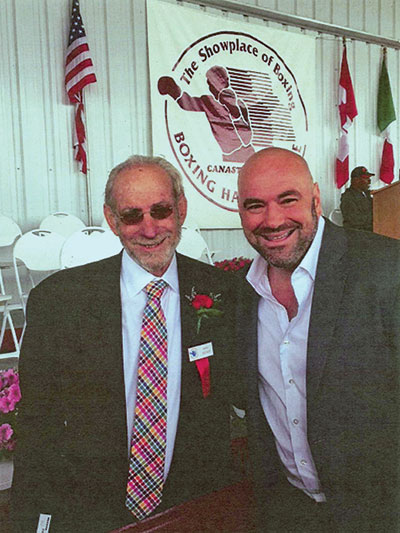
Dana White, president of the UFC, offers assurances that Ratner has only improved with age. Consider this: In 2000, casino entrepreneurs Frank and Lorenzo Fertitta purchased the martial-arts company for $2 million. In July 2016, it was sold to WME-IMG for $4 billion. Ratner has been associated with the enterprise through more than 20 years of its rapid growth. White and Lawrence Epstein, UFC executive vice president and general counsel, know how vital his presence has been.
“When we started the UFC … very early on, we realized that we needed somebody like Marc Ratner to help us grow the sport,” Epstein said. “And hiring Marc was the most high-profile hire that the UFC ever made because it really sent a message that if Marc Ratner would come and join this organization that it had to be credible. No. 1, it had to be focused on the health and safety of athletes. No. 2, and it was going to become a permanent part of the sports landscape. Mr. Ratner would not have joined the organization if those three things were not true.
“I have had the luxury of traveling around the world with Marc as we sought to have the sport regulated and when Marc walked in that room, the ice was broken and credibility was immediately given to us. We would not have gotten this sport regulated and permitted in 50 states and all the provinces of Canada and accepted by federations around the world without Marc Ratner. There’s just no way.”
It all goes back to Ratner’s personality, according to White.
“You know what’s funny?” he asked. “Now understand, everybody in the fight business hates everybody. It’s the craziest thing ever. And nobody — and I mean nobody — dislikes Marc Ratner. He is a guy who can literally work with and for anybody. Everybody is out for their own agenda when they’re looking for something. Marc makes everybody in the room leave happy — even if they didn’t get what they wanted. Marc has this way about him of making everybody feel good. And the guy’s such a hard worker. Even at his age now with us, he’s here every day, he’s flying all over the world to be at all these different fights, to oversee them and make sure everything is being done the right way and working with the different regulators. And he’s still doing all the things on the referee side. It’s amazing at any age — let alone his.”
A prelude: It was the late 1960s when Ratner, still trying to find himself in the professional world, approached Sonny Liston, the notoriously surly former heavyweight champion, for an autograph. Damned if Ratner didn’t come away with a prized signature.
“I went up to him at the Thunderbird Hotel and asked him for an autograph,” Ratner said. “He couldn’t write his name very well. It took him to write his name what seemed like a minute. The next time I saw him a couple of months later, he had mimeographed autographs.”
Call it the Ratner Touch. And it’s something that would be a constant in his career. Like Nov. 6, 1993, when Holyfield was looking for revenge a year after losing his heavyweight championship to Bowe. He appeared to be getting just that in the rematch when, during the seventh round, a 30-year-old paraglider named James Miller literally crashed the party.
“That was the most bizarre moment ever,” Ratner said. “It was at Caesers Palace which, to me, is the most iconic venue in Las Vegas. Outdoors is very special there. I’m watching the fight and I see people looking up and this guy was sitting in some contraption with a fan on the back. He flies right into the ring with his legs overhanging the ropes. This was 1993. If it was 2003, we would have thought it was a terrorist and everybody would have gone crazy. It would have caused a complete riot. I always give credit to the ring announcer, Michael Buffer, because he was able to keep the crowd calm.
“From doing all this officiating, the first thing I knew to do was go to the timekeeper and see how much time was left in the round. So I did that and I went to each judge and said, ‘I don’t know if this fight is going to continue, but if it does, you’re going to have to know where you are in this round because you’re going to have to score this round.’ So there was a 21-minute delay and we got the ring cleared up. Ironically, one judge gave that round to Holyfield, one gave it to Riddick Bowe and one had it even. And if the judge who called it even had given it to Bowe, then the fight would have ended up a majority draw and Bowe would have kept his title. So it really changed the course of heavyweight history.”
Only in boxing would Ratner encounter a bout more bizarre than that. It came June 28, 1997, when Holyfield faced Tyson at the MGM Grand Garden Arena. The previous Nov. 9, Holyfield had upset Tyson for the World Boxing Association heavyweight championship and had won the first three rounds in the rematch. With 40 seconds left in the third round, Tyson, caught in a clinch, maneuvered and bit off a one-inch portion of Holyfield’s right ear. The fight resumed, but was stopped when Tyson bit Holyfield on the left ear.
“What I remember about the first fight is we had a referee that nobody knew much about except us at the commission,” Ratner said. “His name was Mitch Halpern. He had already done about 30 title fights, but he wasn’t Richard Steele, Joe Cortez or Mills Lane to the public, but we had all the confidence in the world in him and he did a great job. So now we come to the second fight and we at the commission thought he did a great job and we’re going to put him back into the second fight. The Tyson people thought because he did the first fight, they wanted a different referee and they wanted Richard Steele. But we didn’t want anyone picking the referee, so the commission picked Mills Lane.
Dana white, president of the Ultimate fighting championship, offers assurances that ratner has only improved with age.
“There was an accidental head butt in the second round, which incensed Tyson. And then in the third round is when he bit him and there would be two bites. I didn’t know what happened, but I saw Evander jumping up and down. … And then Mills came over to the corner and said, ‘He bit him. I’m going to disqualify him.’ All I said was, ‘Are you sure you want to disqualify him?’ I wanted the official to think about what he was saying and he said, ‘Let’s bring the doctor up.’ The doctor said, ‘His ear is bleeding, but he can go on.’ And then it happened again and, for sure, the fight’s over and Mike was disqualified. But I often wondered — and I brought this up at my Hall of Fame speech — after the first bite, if Mike would have knocked him out, I’m sure you wouldn’t have been talking to me today because it would have been my fault that the fight went on to a lot of people.”
Nearly 20 years have passed since that bout and Ratner remains as busy as ever. These days, he is pouring energy into the UFC. It has escalated into an international phenomenon.
“The great thing for me is to see the sport grow,” Ratner said. “I can go to Australia now and use the Australian officials. We’ve grown the officiating base there. We have officials all over Europe now who are working. Unlike football and basketball, we’ve been able to groom these people with limited experience into world-class officials and bring some of them to America now.”
Ratner, an avid newspaper reader who has a passion for “The Sopranos” television series and “The Godfather” film trilogy, has no plans to slow down.
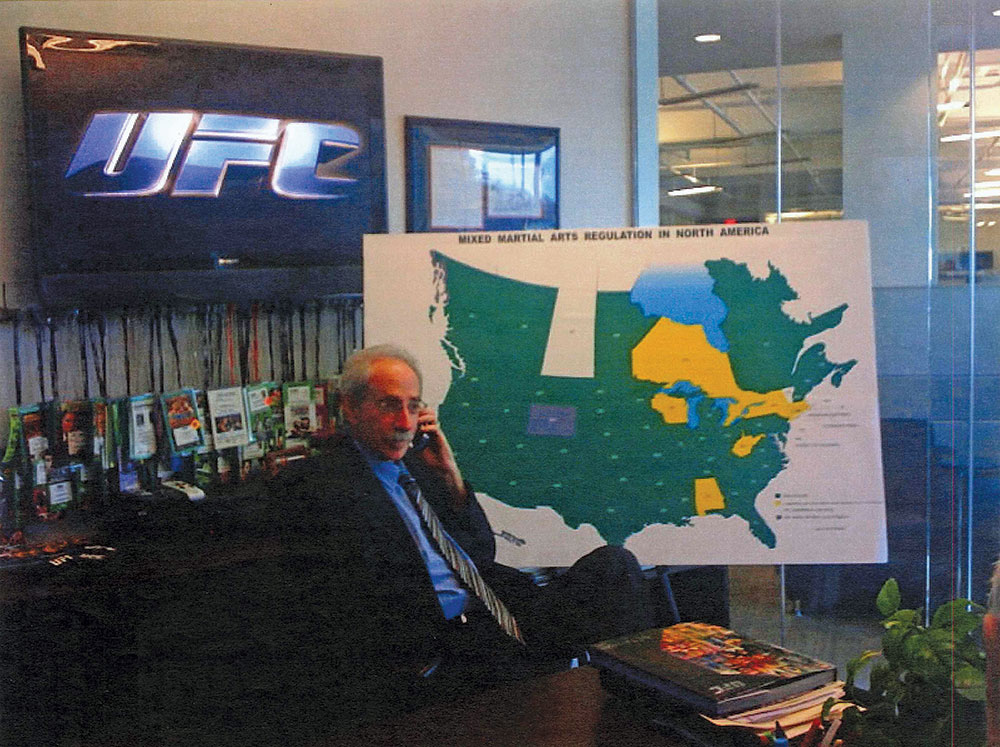
“I’m very proud of him,” Heiden Ratner said. “He accomplished a lot and he’s well known in his lanes of life. I used a scripture to reference him recently. It comes from the Book of Proverbs. It says, ‘A good reputation is better than silver and gold.’ And I’ve never met a person who ever said anything negative about my dad and I think that’s powerful. People always say, ‘Your dad is the best man I know,’ and, ‘He’s always answered my phone calls,’ and, ‘He came through for me on this when I needed him.’
“His reputation not just in the city but all around is so strong. If I could model a similar lifestyle pattern where one day when people hear my name they would really only be able to think of things that are positive, that would be a strong testimony to a life.
What's Your Call? Leave a Comment:
Note: This article is archival in nature. Rules, interpretations, mechanics, philosophies and other information may or may not be correct for the current year.
This article is the copyright of ©Referee Enterprises, Inc., and may not be republished in whole or in part online, in print or in any capacity without expressed written permission from Referee. The article is made available for educational use by individuals.

